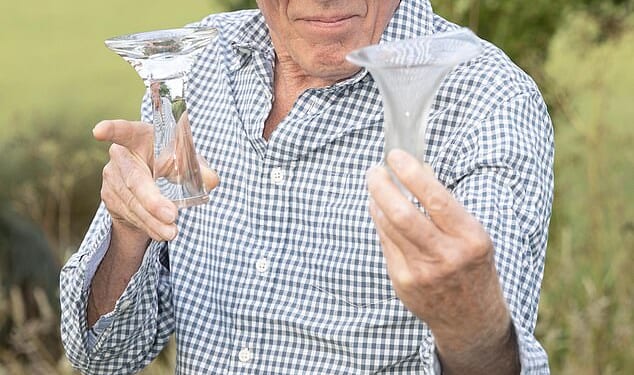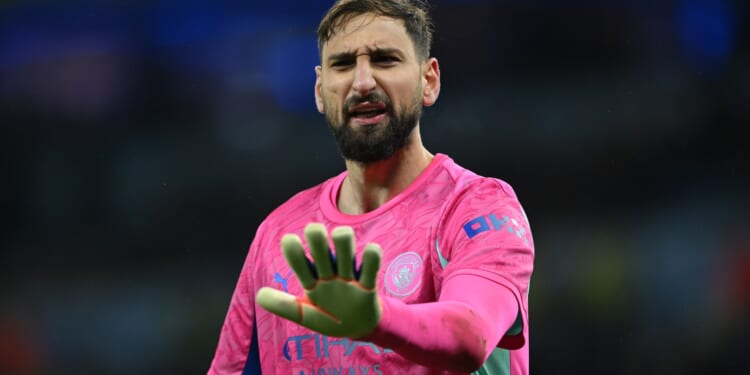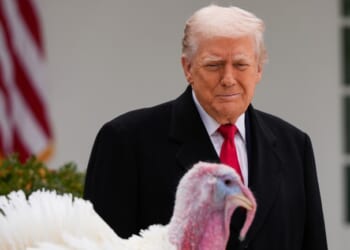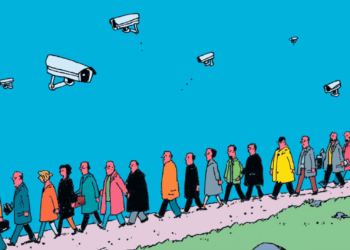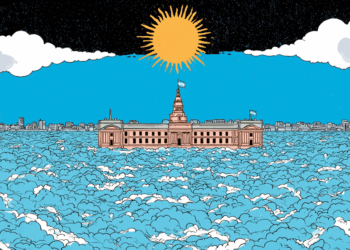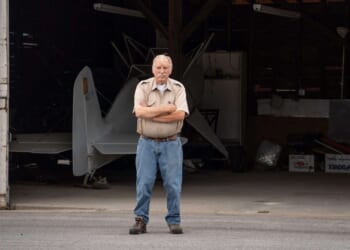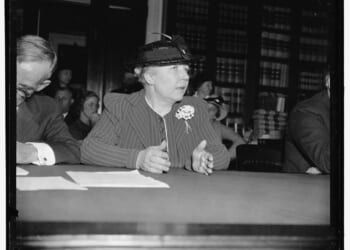An Antiques Roadshow expert has blasted the BBC for their ‘woke‘ stance and admitted he fears he could be axed from the teatime reality show.
Andy McConnell, 72, has claimed he does not ‘conform to what the BBC are aspiring to’ and admitted he was too old to change which left him fearing for his job.
The glass expert added that as he was a straight, white, man, he did not believe he would remain on the show for much longer.
He told an audience at an event in Somerset called Banter with Bonkers: ‘I know I am not PC anymore because that requires a degree of wokeness.
‘I am old, posh, hetero, white and male’.
He added he believed his ‘days are numbered’.
The antique valuer, who has appeared on roadshows for more than 20 years, claimed that some experts are being hired for the hit BBC show because they ‘have a limp’ and are unqualified for the job, giving guests poor valuations for their items.
He told a crowd: ‘Do you want the guy who has written books on the subject or t***pots who happen to walk with a limp – or whatever characteristics happen to be in demand this week?’
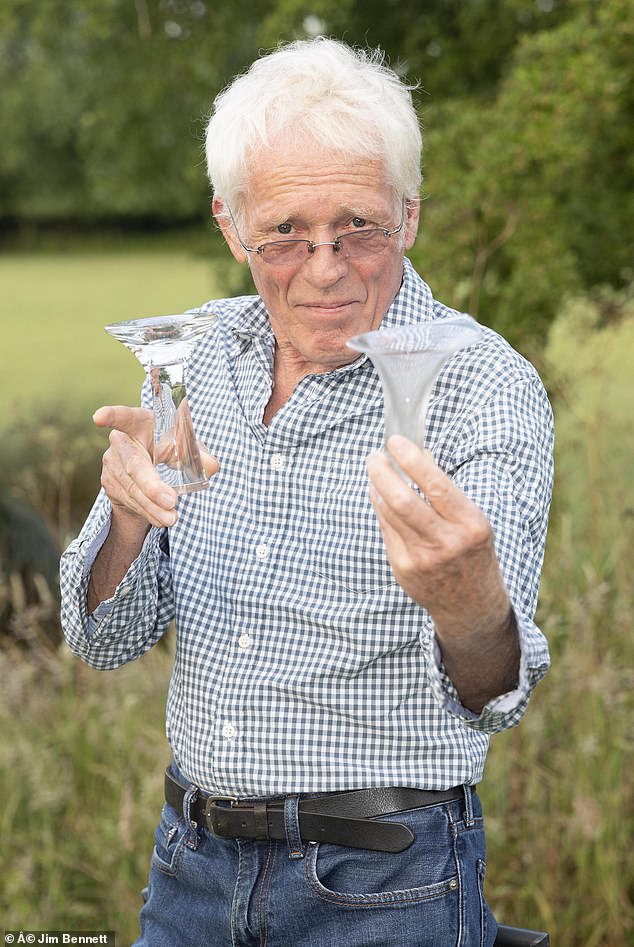
Andy McConnell, 72, (pictured) has claimed that he is being pushed out by the BBC because his opinions do not align with the BBC’s ‘woke’stance
The Antiques Roadshow veteran added that he is frustrated that he is being hauled up by panels over complaints made by colleagues.
Mr McConnell also revealed that the last time he had been spoken to about his behaviour was because of an incident he claimed others believed he had handled poorly.
The glass expert tore into his fellow presenters who over-inflate valuations on guests’ beloved objects and said that he believed the BBC was prioritising who was saying things rather than what was being said.
A BBC spokesperson told the The Mirror: ‘The line-up of experts have an incredible breadth and diversity of expertise, which reflect the variety of items brought to our roadshows up and down the country.’
The Daily Mail has contacted the BBC for comment.
The comments come after one guest on the show was told he was not allowed to bring his items along or show them off on-screen because they were ‘too offensive’.
Robert Needs, a 68-year-old grandad, who partied with the Sex Pistols in the seventies, reflected on his younger years as he spoke to expert appraiser Lisa Lloyd.
He said he bought the clothes from Sex, the punk boutique run by fashion designer Vivienne Westwood and her then-partner and Sex Pistols manager Malcolm McLaren.
The shop – now renamed World’s End but still on the King’s Road in London‘s Chelsea area – was also where the band met and how they got their name.
But some of Robert’s purchases from the shop, known for its outrageous designs, were deemed unsuitable for showing on the BBC programme.
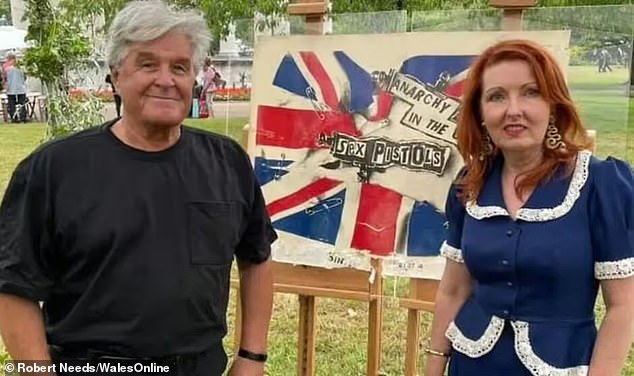
Robert Needs (left, with expert Lisa Lloyd, right) brought in his collection of vintage punk fashion for appraisal on an episode of the TV show in Cardiff last year
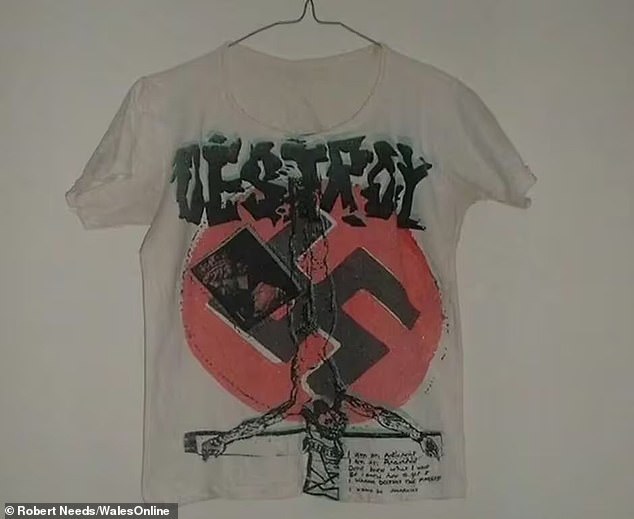
Some of Robert’s purchases (pictured) from the shop, known for its outrageous designs, were deemed unsuitable for showing on the BBC programme
Expert Lisa was first to point this out on the show, ‘Incredibly un-PC’ – but still later valuing his collection of around 20 T-shirts at around £1,000 each.
Robert chuckled: ‘They told me they couldn’t show most of them on camera. Way too naughty for Roadshow viewers I suppose.’
He continued: ‘I shouldn’t really be shocked though because a lot of Westwood’s designs were deliberately very provocative, with plenty of nudity or imagery which could be considered offensive – like Nazi swastikas, for example.
‘But that was the whole point of it back then, they were intended to be controversial.’
The guest said he often used to travel from Wales to London to go to the boutique.
‘There was already a ready-made punk scene going on in south Wales at the time, except we called ourselves “Soul Boys” – the term “punk” was more something the media came up with later on’, he explained.
‘And it was during a visit to Sex that we met the lads from the Pistols.
‘They were amazed to hear they had a lot of Welsh fans back home because they’d drawn mostly hostile reactions whilst playing in other parts of the UK.’

